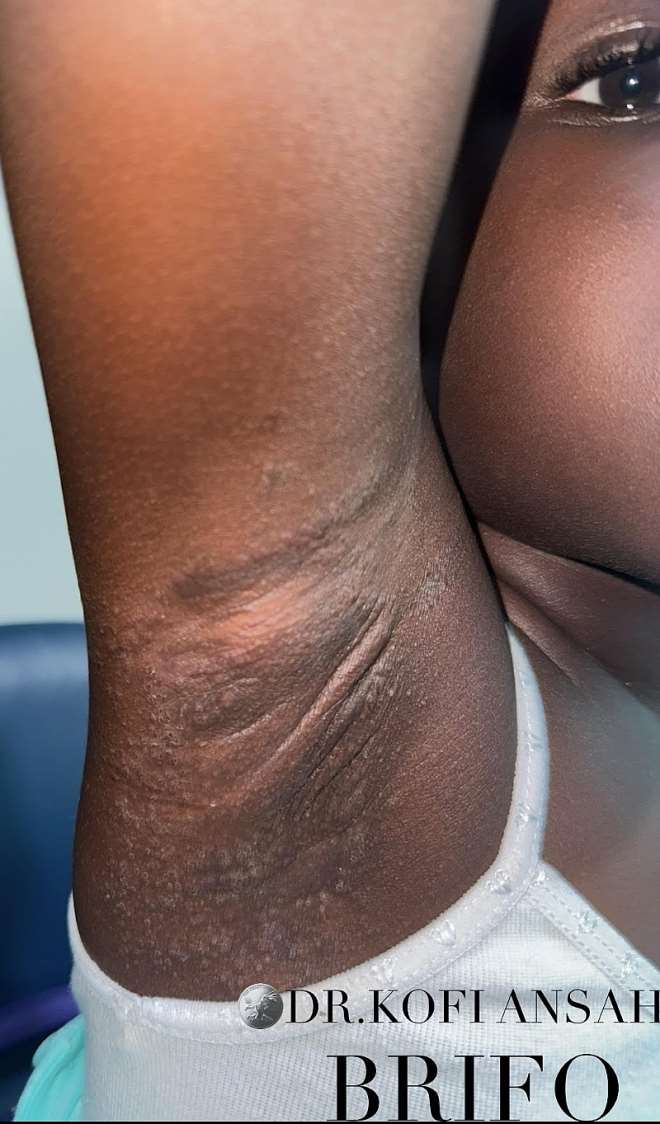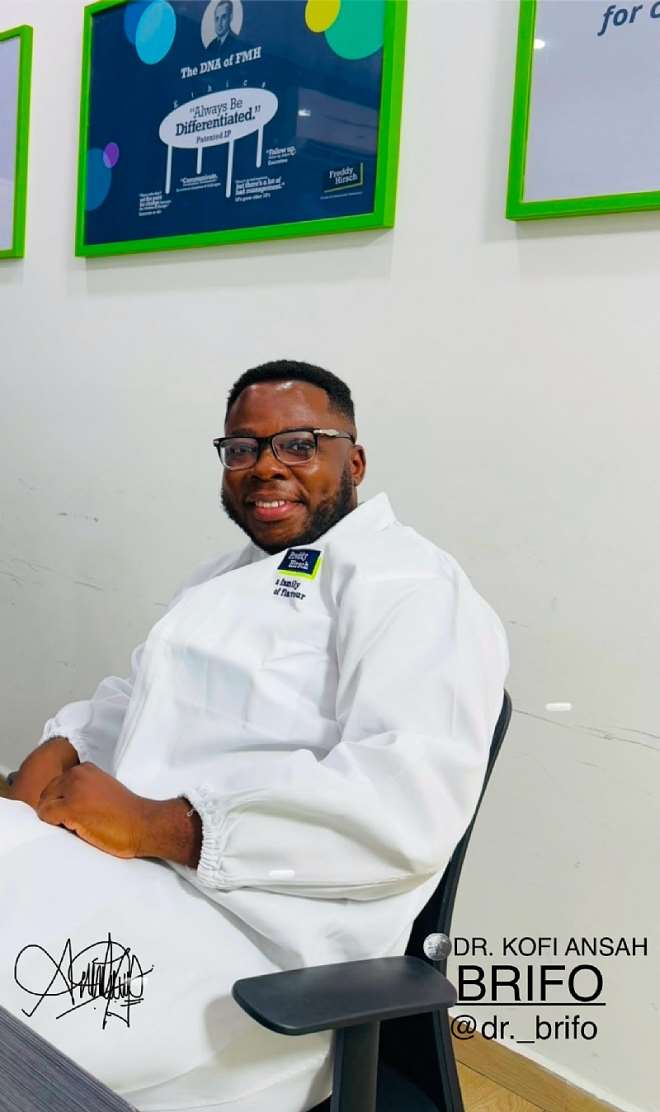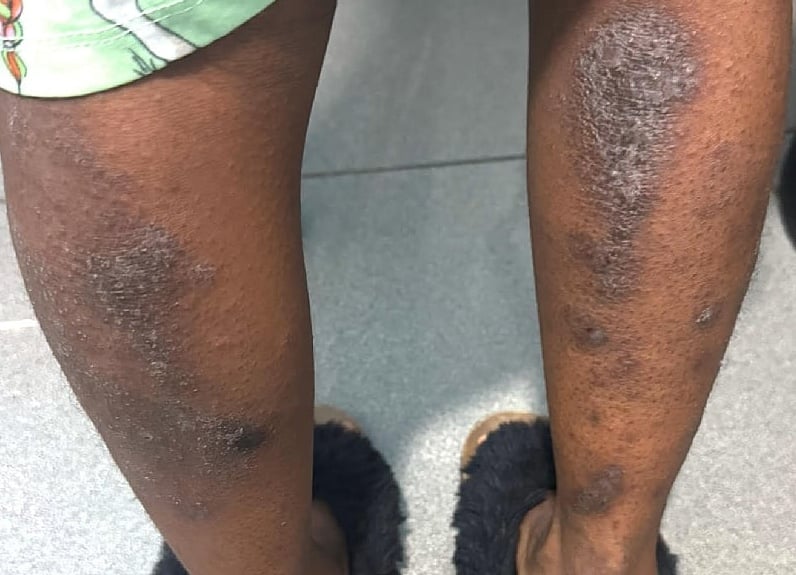In a country where skin conditions are frequently misunderstood, Dr Kofi Ansah Brifo, a highly acclaimed Ghanaian dermatologist, is bringing clarity, compassion, and credible science to one of the most stigmatized skin conditions, eczema.
With qualifications spanning MBChB, MSc in Dermatology, BSc in Biochemistry, an Advanced Certificate in Dermatopathology, and an MBA, Dr Brifo represents a new era of African medical excellence.
Currently practicing at the Rabito Clinic in Osu, he combines clinical expertise with public health advocacy, and he’s on a mission to ensure no child, parent, or adult is left behind in the fight against eczema misinformation.
“Eczema is not contagious,” Dr Brifo asserts firmly, addressing a persistent myth that has led to isolation, stigma, and mistreatment of affected individuals, especially children.
In a recent interview with ModernGhana News, Dr Brifo revealed that in local dialects, many confuse fungal infections—known as Afei in Ga or Ɛkoro in Twi—with eczema, calling them “ENZEMA”, a non-existent medical term. This confusion, he says, has contributed significantly to delayed treatment, inappropriate home remedies, and emotional distress.
Understanding the Condition
Eczema, also called dermatitis, is a chronic skin condition that typically begins in childhood but may persist or recur throughout life. It is characterized by itching, redness, scaling, thickening of the skin, and sometimes fluid discharge due to infection from repeated scratching.
“The most common form is atopic eczema,” Dr Brifo explains. “It usually presents within the first two months of life and is often linked to a family history of asthma, hay fever, or allergies.”
Triggers and Treatment
While the condition is not curable, Dr Brifo emphasizes that it is manageable with the right approach. He lists common triggers as food allergens (like milk, eggs, and peanuts), harsh detergents, fabric softeners, stress, and dry climates.
“What people need is guidance—not fear. Eczema management begins with a structured skincare routine, moisturising at least three times daily, avoiding known allergens, and using non-irritating, dermatologically approved products,” he advised.
Dispelling the Contagion Myth
One of Dr Brifo’s strongest advocacies is the need to eliminate the stigma that eczema is transmissible. “This myth harms more than it helps,” he states. “Parents pull their children away, adults are denied social interaction, and sufferers feel ashamed of their own skin.”
He stresses that eczema cannot be spread through touch or contact, unlike contagious skin conditions such as scabies.
A National Movement for Skin Health
To elevate public knowledge and empower caregivers, Dr Brifo recently launched the Eczema Empowerment Project (EEP)—a nationwide initiative aimed at raising awareness, promoting early intervention, and offering support to families navigating the condition.
Through school visits, community clinics, and digital platforms like WhatsApp (+233 244 746 768), EEP is building a robust network of informed individuals across Ghana and beyond. Dr Brifo invites the public, parents, teachers, and health workers to engage with the project.
A Leading Authority with a Personal Touch
Beyond credentials, what sets Dr Brifo apart is his genuine connection with patients, rooted in a rich experience in medical dermatology and a passion for holistic skin wellness.
Whether he’s demystifying myths on national radio or guiding parents through night-time flare-ups, Dr Brifo’s message remains consistent: eczema is not a curse, not contagious, and not a condition to be ashamed of.
“Everyone deserves to feel comfortable in their skin. Education is our most powerful remedy,” he concludes.




